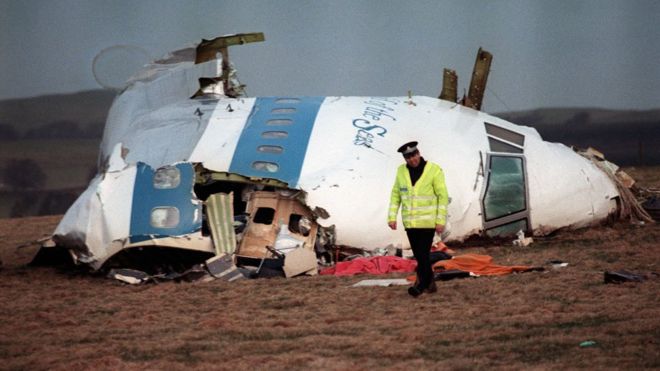In this post, Andy Clark, who is a research associate in History, Classics and Archaeology at Newcastle, discusses his upcoming INSIGHTS Public Lecture based on research that he has led into the aftermath of the Lockerbie Disaster, 1988. The lecture will take place on Thursday December 7th, 2023, at 5:30pm
Regular readers of The Lug will know that, over the last few years, I’ve been leading an interdisciplinary project researching the Lockerbie Disaster, 1988 (see here and here). Working with Dr Colin Atkinson (Criminology, UWS), we interviewed first responders to the site of the worst case of mass murder in Scottish history. We spoke with local police officers, with police officers ‘bussed in’ from other parts of the country, and with mountain rescue volunteers, all of whom were involved with the wreckage recovery and evidence collection.
The project was interrupted by the Covid-19 pandemic, with both upsides and downsides on its progression. The main upside was that we were able to repurpose funds to visit Syracuse University in New York and participate in their week of remembrance, 2022.
The downside was that the communication of our findings, through talks and publications, has been significantly delayed. However, we’ve been working on a publication and dissemination plan, and we’re delighted that we have been selected to give an INSIGHTS Public Lecture. These prestigious events attract large and varied audiences, from across the university, the region, and beyond. This lecture will not be the annual public oral history lecture (more on that to follow!), but is a distinct event to mark the conclusion of this project.

The lecture will take place on Thursday December 7th 2023, almost 35 years since Pan Am 103 was deliberately blown up over the skies of Scotland. Our primary aim in the lecture is to present reconstructive modes of oral history, alongside discussions of some theoretical aspects of our work, which will be explored further in future publications. We are taking this approach as it has been our intention since beginning the project to capture the experiences, memories, and narratives of those who have been omitted from the ‘story’ of the disaster. Most of the focus has been on the victims, their families, key political figures, and those arrested for their part in the atrocity. Our aim in this INSIGHTS lecture is to prioritise the voices of those on the ground, those who responded to the disaster site as compelled by their employment, or who volunteered to scour the surrounding forests for wreckage. There will be some theoretical discussion – on the benefits of maintaining historical distance between atrocity and oral history, and on police culture in rural contexts – and these will be expanded upon in subsequent academic publications.
It is our hope that this INSIGHTS lecture will inform our audience about the key role played by first responders, including Britain’s smallest police force, in responding to a disaster on a scale never seen before nor since in the UK.
Tickets are free, but must be booked in advance. Booking opens on November 30th and you can find out more details here.
